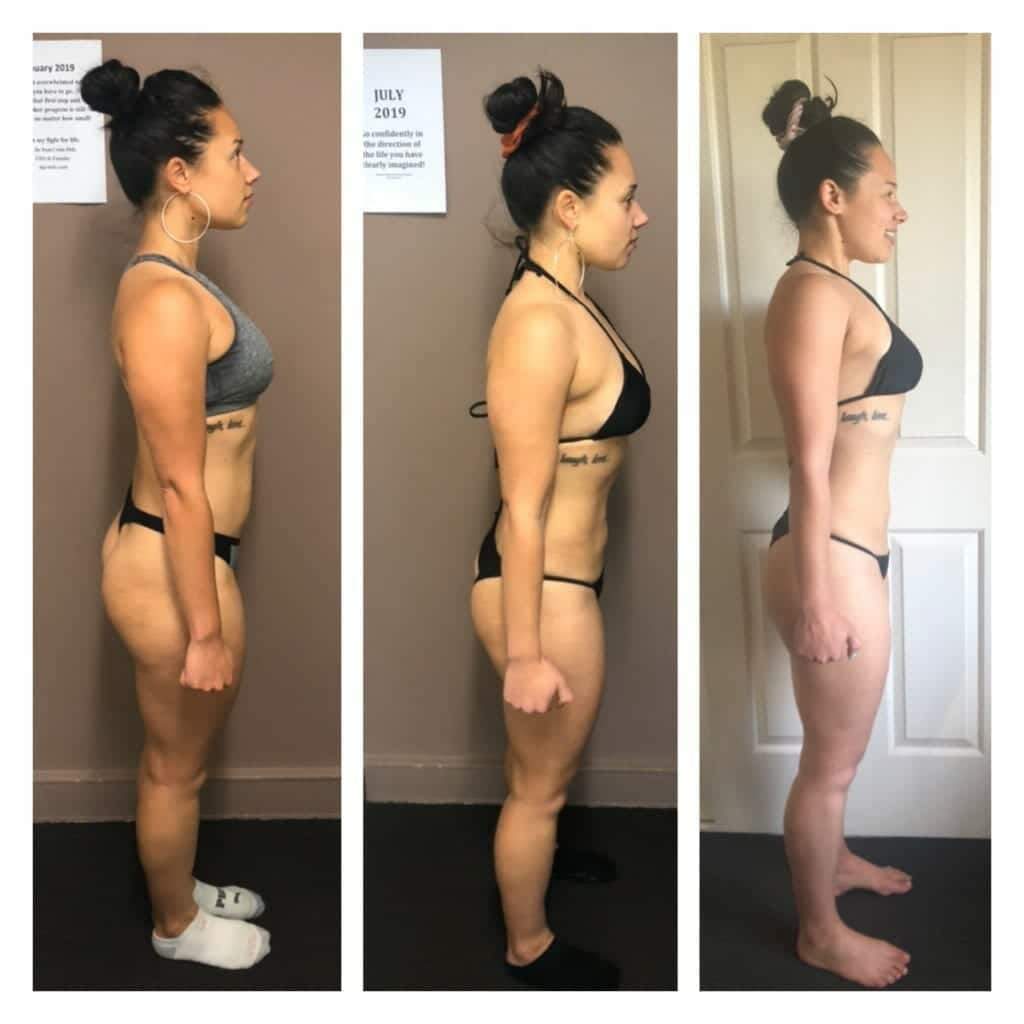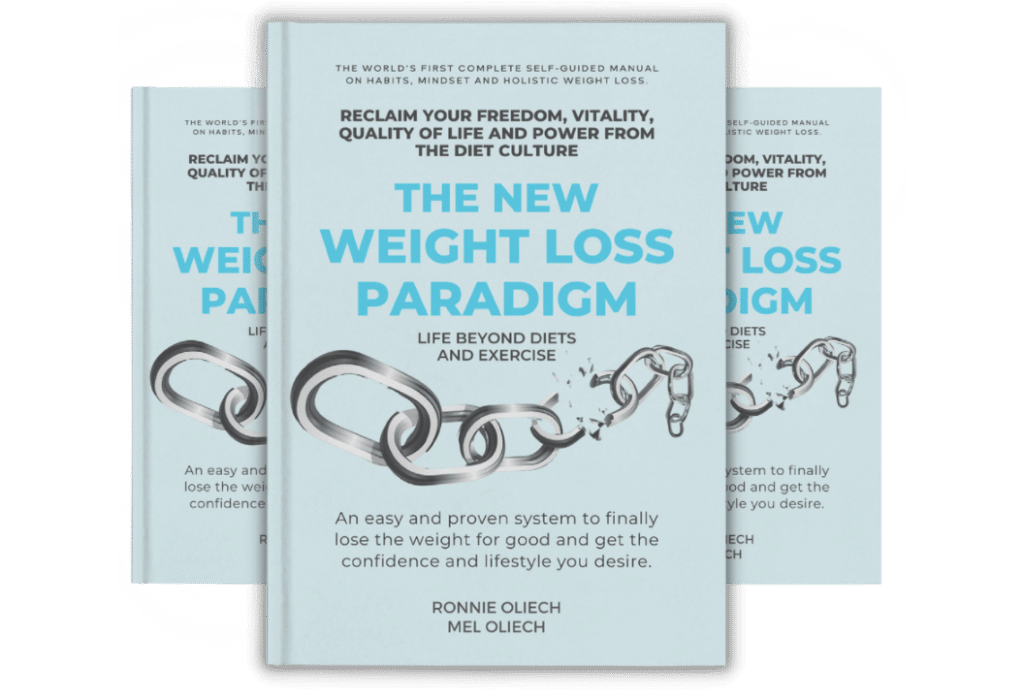You know how it goes. You want to lose weight so you decide to focus your attention on the problems that have caused you to become overweight in the first place — lack of exercise, overeating, and alcohol.
So you start cutting back on what you eat, and eliminating all your favourite foods. You start exercising like a demon, and you decide that alcohol is out too, until you’ve lost the weight.
The only thing is, you’re focusing on the wrong problems…
You see, alcohol, diet and exercise are just symptoms of the real problem. Yet most people think that these factors are the real problem, so they focus all their energy and willpower trying to solve them. Little do they realise that they’re focusing their energy on the wrong thing.
It’s a bit like driving a car with an oil leak. You can keep topping up the oil and driving your car. While this seems to fix the problem, you’re not actually addressing the real problem of why the car is leaking oil, and you risk doing further damage to the car. However, if you fix the actual leak, then you no longer need to worry about your car.
Unless we deal with the real problem instead of addressing the symptoms, we’ll continue to go around in circles, losing and gaining weight.
In this blog, we’re going to look at the 5 most common behaviours that derail people’s progress, and show you just what’s at the root of each one.
Dieting
Most people who want to lose weight go on a diet. Whether it’s a pre-designed meal plan, meal replacement program, food restriction or even fasting, the end-goal is to lose as much weight as possible in the shortest time as possible. However, the problem isn’t their weight. It’s something much deeper.
Ask yourself:
- Do you diet to lose weight?
- Do you want to lose weight for a special occasion?
- Do you want to lose weight for that occasion because you’re afraid of being judged for how you look now?
- Are you afraid of being judged because you feel ashamed?
- Do you feel ashamed because you compare yourself with other people and find that you ‘don’t measure up’?
- Do you compare yourself with other people because you lack confidence in who you are?
- Do you lack confidence because you have low self-worth?
People who want to lose weight often say they want to feel better, look better or be healthier. But the real reason they diet is so they can feel worthy. In this case, the real problem has nothing to do what they put into their mouth, so focusing on dieting won’t give them the answers they seek. The answer lies in addressing their low self-worth.
Exercising
Along with cutting back on food and calories, most people who want to lose weight start exercising, often trying to do too much too quickly. Those who already exercise start adding in more, believing that the extra calories they burn will equate with weight loss. But the real reason they exercise is not about losing weight at all.
Ask yourself:
- Do you like exercise because you feel bad when you don’t do it?
- Do you feel bad when you don’t exercise because you’re worried that you won’t lose weight or you may even gain weight?
- Are you worried about gaining weight because you’re worried about what other people will think of you?
- Do you care about what other people will think of you because you need others to love and accept you?
- Do you need validation from other people because you don’t validate yourself?
- Do you have trouble validating yourself because you have low self-worth?
Once again, most people don’t exercise because they like it. They exercise because it makes them feel better about who they are. So the answer to their weight problem isn’t found in exercise and burning calories. The answer will be found when they learn to feel better about who they are, with or without the exercise.
Alcohol
Most of us know that drinking makes it harder for us to lose weight. Yet many people struggle with their drinking habits even when they have the best of intentions to cut back or stop altogether. But cutting out alcohol is not the solution, because drinking is only a symptom.
Ask yourself:
- Do you drink to relieve stress?
- Are you stressed because you’re trying to do too much?
- Are you trying to do too much because you’re afraid to say ‘no’ and put your needs first?
- Are you afraid to say ‘no’ because you’re a people-pleaser?
- Are you a people-pleaser because you worry about what other people will think of you?
- Are you worried about what other people will think, because you lack self-confidence?
- Do you lack self-confidence because you have low self-worth?
A lot of people say they drink to relieve stress, but this stress really stems from their feelings of low self-worth. The solution to their weight problem isn’t found by cutting out alcohol. It’s found in dealing with the real reason they drink. And this is because of the stress involved in having low self-worth, and all the behaviours that go along with it.
Stress
Stress is a known metabolic blocker, which means that having too much in your life will impact your weight loss. A lot of people struggle with stress levels and find it hard to say ‘no’ to things. But you won’t solve your problem by trying to be ‘less busy’.
Ask yourself:
- Are you stressed because you do too much or work longer hours than you should?
- Do you do too much because you have trouble saying ‘no’?
- Do you have trouble saying ‘no’ because your self-worth is based on what you do and what you achieve?
- Do you have trouble saying ‘no’ because you’re a people-pleaser who wants everyone to like you?
- Do you have trouble charging what you’re worth because you want people to like you?
- Do you work longer hours because you’re discounting your products and services?
- Are you discounting your products and services because you don’t think you can charge more?
- Do you have trouble charging more because you don’t think you’re worth it?
- And do you not think you’re worth it, because you don’t think you’re enough as you are?
While most of us like to feel we have a purpose in life, and we feel good when we achieve things, a lot of people take on too many things because they feel that without these achievements, they’re not enough. Similarly, people who run businesses often work longer than they need to, because they discount their products and services, try to keep everyone happy, and end up having to work longer because they don’t charge enough to make a decent living working normal hours. The solution here isn’t about blanking out your calendar, or putting your prices up. It’s about increasing your self-worth so you don’t feel the need to be so busy and stressed in the first place.
Sleep
Sleep is something that many people skimp on but it’s one thing that will make a big difference to your weight loss journey. But not getting enough sleep is just a symptom of a larger, deeper problem.
Ask yourself:
- Do you go to bed late because you’re spending time doing other things?
- Do you say ‘yes’ to going out drinking with your friends because you don’t want to upset them, even if it means you get to bed too late?
- Are you afraid of upsetting your friends because you’re worried what they’ll think of you?
- Do you skimp on sleep because you work more than you need to?
- Do you work late to keep your boss happy?
- Do you need to keep your boss happy because you’re afraid of not being liked?
- Do you stay up late searching through social media posts to make sure you’re up with the latest gossip?
- Do you need to know that latest gossip so you feel like you fit in?
- Do you need to fit in because you feel unworthy if you don’t?
It’s relatively easy to get enough sleep each night, but most people fail to because they feel that keeping other people happy, or keeping up with social media so they can fit in, is more important. Going to bed earlier won’t solve the problem. But dealing with the feelings of low self-worth will.
Low self-worth
As you can see, the keystone habit that is driving all of these choices and behaviours is low self-worth.
Self-worth is the belief that you are valuable, worthy and loveable regardless of your weight, your beliefs, your morals, your job, your personality traits or your list of achievements. Self-worth is a belief based on your worthiness as a human being, not external factors.
When someone has low self-worth, they tend to engage in behaviours that are designed to make them feel worthy — whether that means fitting in, being liked, being praised, or being admired. Often these behaviours are in direct contrast to those that will help them lose weight.
The problem about focusing on changing behaviours (e.g. drinking, over-exercising, over-working, etc.) is that this approach doesn’t address the real issue that’s causing the behaviours. What happens is that people become exhausted and overwhelmed trying to change behaviours that are being driven by a habit, and so they end up quitting and going back to what they were doing.
However, when you address the habit that is driving them, behaviour change takes care of itself, and your weight loss will follow.
What happens when you address the issue of low self-worth?
To illustrate the power of changing this habit, let’s look at an example.
Rhonda used to feel that she was unworthy of love and happiness until she lost weight. When Rhonda believed this, she engaged in people-pleasing behaviours, put other people’s needs first, put up with toxic relationships, was under a great amount of stress and struggled being consistent with her efforts to lose weight. With the help of her coach, Rhonda became aware how her low self-worth was impacting her weight, and so began working on this habit. After a while, Rhonda finally realised and believed that she was worthy, regardless of her weight or what other people thought of her.
Once Rhonda changed her beliefs about herself, she was able to put her goals at the top of her priority list and made time for the things that would help her lose weight, including training early in the morning, doing her weekly meal prep, and getting enough sleep. When her friends asked her to go out with them, she set boundaries around when she would go, how much she would drink (if she drank at all), and when she’d leave to come home.
Rhonda started to focus more on her goals and what she wanted out of life, instead of comparing herself with others, and worrying about what other people were doing, or saying. As Rhonda’s self-worth improved, she noticed that she no longer felt the need to say ‘yes’ to everyone, including her boss, and she felt much calmer and more relaxed. She made herself more accountable to her coach and began to get better results with her weight loss.
In the above example, you can see how Rhonda’s priorities changed when she improved her self-worth. She didn’t have to work hard and rely on willpower to give up drinking, or stress herself out to fit in the things that she knew would help her lose weight. She also didn’t feel conflicted about doing the things she knew would give her results, while fighting her impulses to do the things to make her feel worthy. Once she learned to love herself, she was able to prioritise her goals, work more closely with her coach, and began to get the results she was looking for.
Is low self-worth your keystone habit?
Keystone habits are the most powerful of all because they are the ones that lead to the development of multiple habits. When your keystone habit is one that sabotages you, it creates a whole lot of other negative habits which have a negative snowball effect on your results. When you try to change your behaviours through willpower alone, you’re actually fighting a losing battle, which will cause you to become overwhelmed and eventually give up.
When someone has a keystone habit of low self-worth, all the habits that stem from this are designed to help them feel more worthy, but these won’t help them lose weight. This explains why so many people get stuck on their weight loss journey.
However, by working on your self-worth, and making positive self-worth your new habit, weight loss results take care of themselves, because you actually create a lot of new habits that stem from valuing yourself. And these habits snowball into positive changes which support weight loss.
To understand more about the power of keystone habits, make sure you read our blog What’s a keystone habit and why do you have to focus on it to get results.
To understand more about how habits can snowball, check out our blog The snowball effect: Why small things add up to big weight loss.
Improve your self-worth
If you’ve been struggling to lose weight, been fighting behaviours you don’t understand, and want to finally break free from the fight, we’re ready to help.
Through our Diet Antidote Transformation System (DATS™️) — the Not-diet diet for people who are sick of diets and want more than a good body — we can provide you with the structure and accountability you need to help you reach your weight loss goals.
Through our program we will give you specific, personalised action steps to help you improve your self-worth, so you can start focusing on the real source of your problems, instead of the symptoms. This will help you change the keystone habits that have been sabotaging your efforts all this time, so you can finally start feeling good about yourself and lose weight.
DATSTM will give you the knowledge, systems, tools and skills to help you deal with any situation, so you can finally learn to value yourself as you are, regardless of your appearance, personality traits and achievements.


















